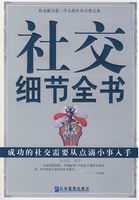The chivalric element of English society, among the higher classes, came from the Normans, not from the Saxons. In piety, in passive virtues, in sustained industry, in patient toil, in love of personal freedom, the Saxons doubtless furnished a finer material for the basis of an agricultural, industrial, and commercial nation. The sturdy yeomen of England were Saxons: the noble and great administrators were Normans. In pride, in ambition, and in executive ability the Normans bore a closer resemblance to the old heroic Romans than did the Saxons.
The next archbishop after Lanfranc was Anselm, appointed by William Rufus. Anselm was a great scholar, the profoundest of the early Schoolmen; a man of meditative habits, who it was presumed would not interfere with royal encroachments. William Rufus never dreamed that the austere and learned monk, who had spent most of his days in the abbey of Bec in devout meditations and scholastic inquiries, would interfere with his rapacity. But, as we have already seen, Anselm was conscientious, and became the champion of the Papal authority in the West. He occupied two distinct spheres,--he was absorbed in philosophical speculations, yet took an interest in all mundane questions. His resolve to oppose the king's usurpations in the spiritual realm caused the bitter quarrel already described, which ended in a compromise.
When Henry I. came to the throne, he appointed Theobald, a feeble but good man, to the See of Canterbury,--less ambitious than Lanfranc, more inoffensive than Anselm; a Norman disinclined to quarrel with his sovereign. He died during the reign of Henry II., and this great monarch, as we have seen, appointed Becket to the vacant See, thinking that in the double capacity of chancellor and archbishop he would be a very powerful ally. But he was amazingly deceived in the character of his Chancellor. Becket had not sought the office,--the office had sought him. It would seem that he accepted it unwillingly. He knew that new responsibilities and duties would be imposed upon him, which, if he discharged conscientiously like Anselm, would in all probability alienate his friend the King, and provoke a desperate contest. And when the courtly and luxurious Chancellor held out, in Normandy, the skirts of his gilded and embroidered garments to show how unfit he was for an archbishop, Henry ought to have perceived that a future estrangement was a probability.
Better for Henry had Becket remained in the civil service. But Henry, with all his penetration, had not fathomed the mind of his favorite. Becket was not one to dissemble, but a great change may have been wrought in his character. Probably the new responsibilities imposed upon him as Primate of the English Church pressed upon his conscience. He knew that supreme allegiance was due to the Pope as head of the Church, and that if compelled to choose between the Pope and the King, he must obey the Pope. He was ambitious, doubtless; but his subsequent career shows that he preferred the liberties of his Church to the temporal interests of the sovereign. He was not a theologian, like Lanfranc and Anselm.
Of all the great characters who preceded him, he most resembles Ambrose. Ambrose the governor, and a layman, became Archbishop of Milan. Becket the minister of a king, and only deacon, became Archbishop of Canterbury. The character of both these great men changed on their elevation to high ecclesiastical position. They both became high-churchmen, and defended the prerogatives of the clergy. But Ambrose was superior to Becket in his zeal to defend the doctrines of the Church. It does not appear that Becket took much interest in doctrines. In his age there was no dissent.
Everybody, outwardly at least, was orthodox. In England, certainly, there were no heretics. Had Becket remained chancellor, in all probability he would not have quarrelled with Henry. As archbishop he knew what was expected of him; and he knew also the infamy in store for him should he betray his cause. I do not believe he was a hypocrite. Every subsequent act of his life shows his sincerity and his devotion to his Church against his own interests.















